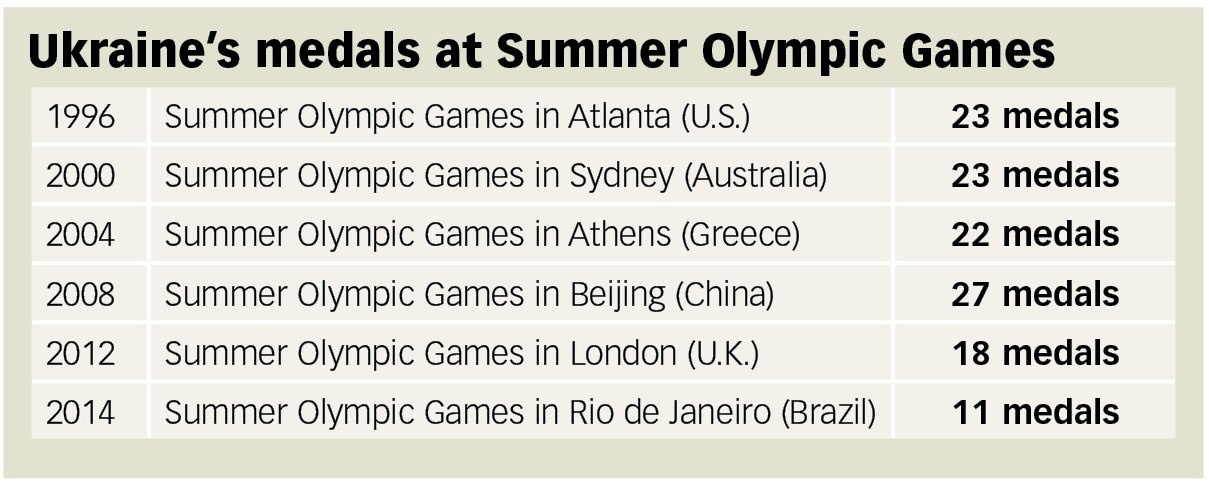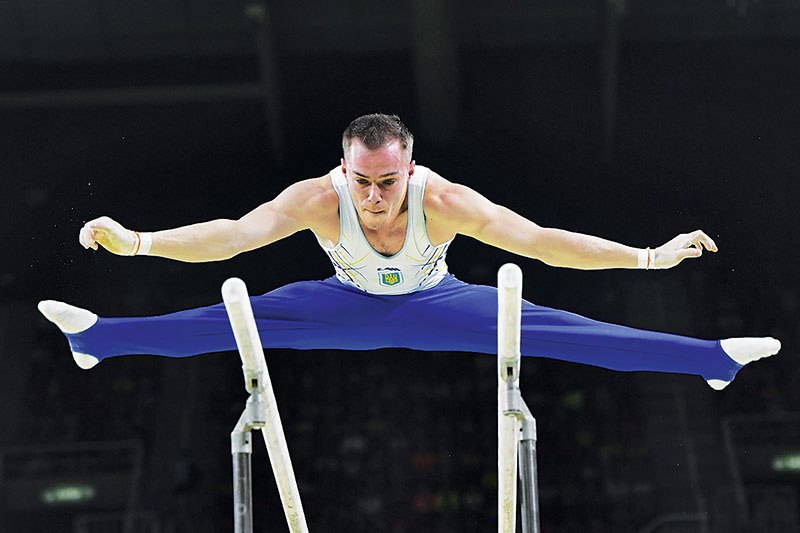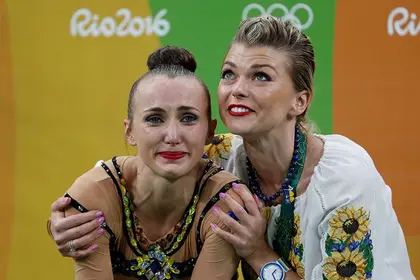The games closed on Aug. 21 with Ukraine finishing in 31st place among the 205 participating countries. Ukrainian athletes won 11 medals, two of them gold, five silver and four bronze.
The record seems impressive until put in context: At each of the previous Summer Olympics since its independence, Ukrainians won twice as many medals. Ukraine’s team was the smallest ever – only 205 athletes competing in 27 sports. Previously, Ukraine used to bring teams of 230 to 254 athletes.
JOIN US ON TELEGRAM
Follow our coverage of the war on the @Kyivpost_official.
Critics, among them Ukrainian Olympians themselves, say that the state’s neglect of sports is to blame.
The 2016 Summer Olympics will go down in history is one of the worst organized competitions in decades. Held amid economic crisis and political instability in Brazil, the games were marked by news of sports venues malfunctioning and athletes’ claims of being mugged.

Precious victories
The U.S. landed first place at the Olympics by winning 121 medals, followed by the United Kingdom. and China. But while Ukraine’s result was far from the winning trio, it had 11 medals of its own.
Canoeist Yuriy Cheban and gymnast Oleg Verniaiev brought Ukraine its two gold medals.
Verniaiev, Ukrainian Greco-Roman wrestler Zhan Beleniuk, shooter Serhiy Kulish, pentathlonist Pavlo Tymoshchenko and four-member fencing team brought Ukraine its five silver medals.
Ukraine’s sabre fencer Olga Kharlan, high jumper Bohdan Bondarenko, canoeists Dmytro Ianchuk and Taras Mishchuk, and artistic gymnast Ganna Rizatdinova won a bronze medal each.

Money matters
Silver medalist, Greco-Roman wrestler Beleniuk, 25, says that the Ukrainian authorities don’t pay attention to athletes.
“The people in power care only about enriching themselves, not about athletes or results,” Beleniuk told the Kyiv Post. “Until it changes, we’ll be seeing the results like this year’s.”
The professional athletes are severely underfunded in Ukraine, argues Beleniuk, who has been receiving around $500 (Hr 12,500) monthly from the state.
“This is not the money that some entry-level wrestler gets. It takes people 15-16 years to achieve this level,” says Beleniuk, who won the World Championship in 2015.
Beleniuk says that he could be earning the same money at an office job, instead of taking up a professional sport that requires lots of efforts and harms one’s health. Moreover, as the athlete’s career is a short one, he needs to accumulate money for a living.
Beleniuk says that the Olympics are the only point in the athletes’ career when the state rewards them fairly.
The state-paid money prizes come as great contrast to the meager scholarships. A gold Olympic medal brings a $125,000 reward, a silver medal pays $80,000, while a bronze is $55,000, according to Ukrainian Sports Minister Ihor Zhdanov. There will be additional rewards from the Ukrainian Olympic Committee, ranging from $4,700 to $12,000.
The competing countries have different approaches to encouraging its Olympians. Singapore gives the most generous money prizes to its athletes – $745,000 for a gold medal, while the governments of the U.K., Norway, and Switzerland don’t give individual money rewards, but direct the money to the sports clubs.
Ukraine, however, is generous only to the Olympians. The winners of the world championships get around $2,000 as a reward from the state. Such was the case for Beleniuk and gymnast Rizatdinova.
Verniaiev, who won a gold medal at the parallel bars and a silver one in all-around competition, agrees that Ukraine’s results reflect the failure of authorities to create favorable conditions for athletes. He said that the gymnasts in particular need proper equipment and at least one separate gym for those who train for the Olympics.
“While we are in the spotlight we try to push to get as much as we can from (the state),” Verniaiev told the Kyiv Post on the autograph session on Aug. 25.

Ukraine’s Oleg Verniaiev competes in the men’s parallel bars event final of the artistic gymnastics at Olympic Arena during the 2016 Summer Olympic Games in Rio de Janeiro on Aug. 16. (AFP)
True patriots
Low funding already forced some athletes to relocate abroad.
As many as 135 Ukrainian professional athletes changed citizenship since independence for various reasons, including the financial, Minister of Youth and Sports Ihor Zhdanov to Channel 112 on May 24. Twenty athletes changed Ukrainian citizenship to Russian after the annexation of Crimea in 2014, including javelin thrower Vera Rebryk and windsurfer Maksym Oberemko.
“Some athletes leave Ukraine because in other countries they are paid well and accomplished,” gymnast Rizatdinova told the Kyiv Post by phone on Aug. 25, after returning from the Olympics.
Rizatdinova also said she was very disappointed that the public was so preoccupied with the results and didn’t appreciate the 11 medals that Ukraine won – a result that she calls a huge achievement.
“I want to ask Ukrainian people to appreciate our athletes because they are doing sports not to make money,” she said. “Those athletes who compete for Ukraine are the true patriots.”
You can also highlight the text and press Ctrl + Enter




